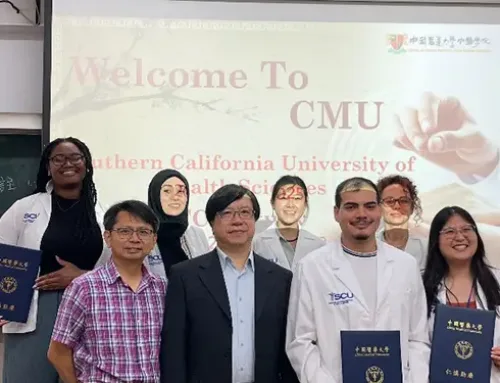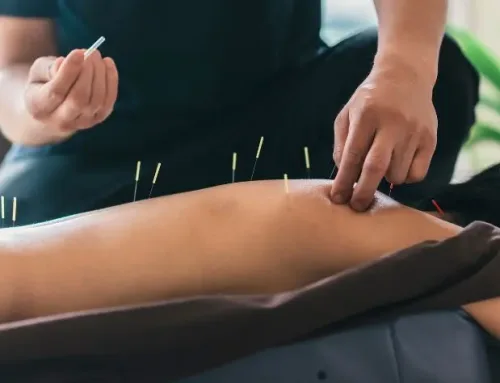Top Acupuncture Schools for Integrative Medicine Careers

The top acupuncture schools offer focused preparation for students ready to build a career in integrative healthcare. They’re designed for people who want to help others through hands-on, patient-centered care grounded in centuries of tradition.
If you’re exploring a future in healing, this is a path that brings depth, meaning, and professional growth. The right school can connect you with expert faculty, real-world clinical training, and a community committed to advancing holistic medicine.
What to Look for in a Top-Tier Acupuncture School
Choosing where to study acupuncture is one of the most important steps in your healthcare journey. The best schools share several traits that prepare you for licensure, professional practice, and lifelong learning. They combine academic rigor with patient-centered clinical experience and give you access to the kind of support that helps you thrive in and beyond the classroom.
As you evaluate your options, look for these essential features that define a strong and reputable program:
Accreditation, Curriculum, and Clinical Experience
Accreditation ensures that your degree meets national standards and qualifies you for state licensure exams. Programs accredited by the Accreditation Commission for Acupuncture and Herbal Medicine (ACAHM) meet the benchmarks needed to take licensing exams such as the California Acupuncture Licensing Examination (CALE) and the National Certification Commission for Acupuncture and Oriental Medicine (NCCAOM) exams.
A well-rounded curriculum includes both Traditional Chinese Medicine (TCM) and Western biomedical sciences. Understanding anatomy, physiology, and diagnostics strengthens your clinical reasoning and helps you collaborate effectively with other healthcare professionals.
Look for these qualities:
- ACAHM accreditation and preparation for state and national licensure
- Coursework that integrates biomedicine and traditional Chinese medicine
- Clinical training that begins early and continues throughout your program
- Direct patient experience under supervision from experienced faculty
Flexibility, Accessibility, and Global Learning
A high-quality acupuncture school makes education attainable for students at different stages of life. Flexible formats such as evening, part-time, or blended schedules help you balance study with work or family responsibilities.
International engagement is another hallmark of excellence. Leading acupuncture schools provide opportunities for global study, cultural exchange, and immersion in the origins of Traditional Chinese Medicine. Studying in China or Taiwan deepens understanding of classical practices and offers valuable insight into how Eastern medicine continues to evolve worldwide.
Financial Support and Transparency
An acupuncture education is an investment in your professional future. Transparent tuition structures, institutional scholarships, and financial aid options make planning easier and more predictable. Programs that clearly outline costs and provide dedicated financial counseling demonstrate a strong commitment to student success.
Top Acupuncture Schools Leading the Future of Integrative Medicine
1. Southern California University of Health Sciences (SCUHS) – Whittier, CA
At Southern California University of Health Sciences (SCUHS), we prepare students to become leaders in integrative and whole-person healthcare. As one of the nation’s most forward-thinking institutions in Traditional Chinese Medicine (TCM) education, we’re proud to offer California’s first entry-level Doctorate in Acupuncture and Chinese Herbal Medicine—accredited by the Accreditation Commission for Acupuncture and Herbal Medicine (ACAHM).
From your very first year, you’ll gain hands-on clinical experience at SCU Health System clinics, treating patients under the guidance of experienced practitioner-faculty. This early clinical exposure helps you develop real-world skills in communication, diagnosis, and treatment planning while becoming part of an interprofessional team that reflects the way modern healthcare is delivered.
We understand that every student’s journey looks different, so we’ve created multiple learning formats to fit your lifestyle. Whether you study full-time on campus, in the evening, or through our blended part-time option, you’ll have access to the same rigorous curriculum, mentorship, and professional support.
Our program also includes international opportunities through long-standing partnerships with leading universities in China and Taiwan, giving you the chance to experience acupuncture education where it began and expand your global perspective.
Why students choose us:
- In-person, evening, and blended part-time pathways
- Dual-degree option with our Doctor of Chiropractic program
- Hands-on clinical training beginning in your first year at SCU Health System clinics
- International partnerships with renowned institutions like Tsinghua University
- Entry options for students without a completed bachelor’s degree, with embedded bachelor’s and master’s pathways
We also offer financial aid, institutional scholarships, and a fixed tuition guarantee to help you plan your education with confidence. If you’re ready to build your future in integrative healthcare, apply today or request more information to connect with our admissions team.
2. Oregon College of Oriental Medicine (OCOM) – Portland, OR
OCOM is known nationally for its research contributions to acupuncture and its strong emphasis on Classical Chinese Medicine. Located in downtown Portland, OCOM features a campus clinic that serves a diverse urban population. The college offers both master’s and doctoral-level training, including a Doctor of Acupuncture and Oriental Medicine (DAOM) for advanced clinical and scholarly development.
3. Bastyr University – Kenmore, WA & San Diego, CA
Bastyr blends Traditional Chinese Medicine with a broader focus on natural health sciences. With campuses in both Washington and California, Bastyr offers access to students across the West Coast. The university is recognized for integrating acupuncture training with scientific research and public health principles. Students can pursue Master’s or Doctoral-level degrees and often engage in interdisciplinary learning alongside naturopathic and nutrition students.
4. Maryland University of Integrative Health (MUIH) – Laurel, MD
MUIH offers a flexible acupuncture education with fully online and hybrid formats, catering to students seeking remote learning options. With areas of focus that include pain management, women’s health, and sports acupuncture, MUIH emphasizes specialization within a whole-person care model. The program is rooted in mind-body integration and prepares students to contribute meaningfully to modern wellness and clinical environments.
Career Outcomes: What Can You Do with a Doctorate in Acupuncture & Chinese Medicine?
A doctorate in acupuncture and Chinese medicine opens doors to a wide range of professional possibilities. Whether you’re called to hands-on clinical care, teaching, research, or public wellness, this degree gives you the training and credentials to step confidently into meaningful work. You’ll be equipped to support patients, educate future practitioners, and contribute to the ongoing growth of integrative health systems across the U.S. and globally.
Licensed acupuncturists today work in both traditional and modern clinical settings, with opportunities to practice independently or as part of collaborative teams. Hospitals, VA centers, pain management clinics, wellness retreats, and academic institutions are increasingly integrating acupuncture into their services.
Career Paths for Acupuncture Doctors
- Licensed acupuncturist in private or group practice
- Practitioner in integrative medical centers, hospitals, or rehabilitation clinics
- Faculty member or clinical supervisor in acupuncture schools or health science universities
- Researcher focused on acupuncture, herbal medicine, or integrative modalities
- Wellness consultant in corporate health or community wellness programs
- International practitioner (subject to licensing and credentialing by country)
A Growing Field with Strong Earning Potential
As demand grows for non-pharmacological treatment options and whole-person care, the role of licensed acupuncturists continues to expand. According to the U.S. Bureau of Labor Statistics, the national median wage for acupuncturists in 2023 was $78,220, with high earners making over $140,660 annually. In California, where integrative healthcare is especially strong, the average wage was $83,340. Graduates with a doctorate-level education are well-positioned to take on leadership roles, teach at the graduate level, and work in settings that value advanced clinical training.
With international partnerships and growing recognition of Traditional Chinese Medicine worldwide, licensed acupuncture doctors have the opportunity to practice across borders, contribute to global health projects, or collaborate with international institutions. Whether you stay close to home or pursue work abroad, your education can support a career that reflects your values, interests, and commitment to healing.
Begin with the Right Education, Grow with Confidence
The field of acupuncture and Chinese medicine offers a deeply meaningful path for those drawn to whole-person care, hands-on healing, and lifelong learning. The top acupuncture schools prepare students for dynamic careers in integrative health, combining classical knowledge with clinical training that supports today’s healthcare demands.
Whether you see yourself in private practice, collaborative clinical settings, or international health projects, your education sets the foundation. If you’re ready to start a career that blends science, tradition, and service, we invite you to apply now or request more information to learn how SCUHS can help you move forward.
FAQs
What kinds of careers can I pursue with a doctorate in acupuncture?
With a doctorate in acupuncture, you can become a licensed practitioner, open your own clinic, join integrative health teams, or work in hospital settings. Some graduates also pursue roles in research, education, or wellness consulting. There’s also room to specialize in areas like sports medicine, fertility, pain management, or mental health, depending on your interests and credentials.
How long does it take to complete a doctoral program in acupuncture?
Most entry-level Doctor of Acupuncture and Chinese Medicine programs take around 3.5 to 4 years if enrolled full-time. Part-time and evening formats may extend the timeline to 5–7 years, depending on your pace. Programs with flexible or blended schedules allow you to structure your education around your life while staying on track toward licensure.
Do I need a bachelor’s degree to start a doctorate in acupuncture?
Some programs require a completed bachelor’s degree, but others allow you to enter with 90 or more undergraduate credits. You can finish your bachelor’s while earning your doctorate, with no additional time added. This makes the path more accessible if you’re still completing your undergraduate education or returning to school after time away.
What should I look for when comparing top acupuncture schools?
The top acupuncture schools focus on ACAHM accreditation, early hands-on clinical training, integration of Western biomedical sciences, and preparation for licensure exams. Look for flexible program formats, global learning opportunities, and advising support. A strong program will also offer access to real patients in supervised clinical settings from early in your education.
Does SCUHS offer flexible scheduling for acupuncture students?
Yes. At SCUHS, you can choose from full-time daytime, full-time evening, or part-time blended formats to match your schedule. Whether you’re working, managing family responsibilities, or simply prefer a slower pace, we give you options to balance your studies with your life—without compromising the quality of your education.
Related Posts




